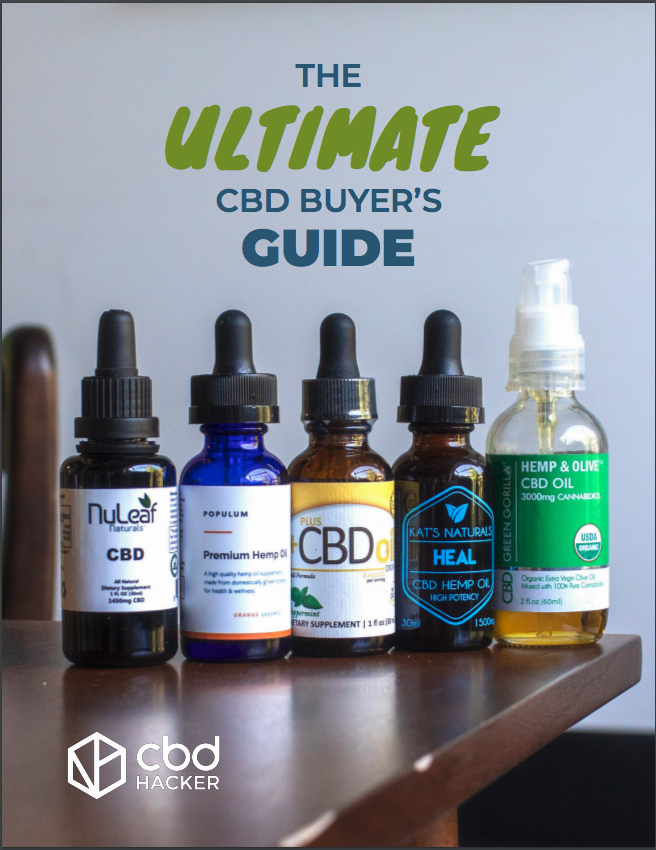
The science behind CBD is in the relatively early stages, and any scientist will tell you that there are many unknowns around the cannabinoid. But even in these early days of research, there’s a distinct buzz in the scientific community around the possible benefits of CBD.
And while the cannabinoid may not bring about world peace or eradicate illness, the early evidence does point to some pretty exciting potential benefits.
What is CBD?
Let’s start with the basics.
CBD is a cannabinoid – a chemical compound that can be extracted from cannabis plants. When we ingest cannabinoids, they influence our endocannabinoid system (ECS), an interrelated system of receptors and chemicals which is present in all mammals.
“But isn’t cannabis illegal?” you might ask.
Well, yes and no. In the US, CBD is legal if it is extracted from industrial hemp, And hemp is defined by the 2018 Farm Bill as a cannabis plant that contains less than 0.3% THC.
And why the concern about THC?
Well, even though THC has a long list of health benefits of its own, it also has the drawback (for medical purposes) of making you high. CBD, on the other hand, is not psychoactive in this way.
In fact, high amounts of CBD will actually dampen the effects of any THC present.
So if it won’t make you high, what will it do?
Glad you asked! Let’s proceed with our tour of some of CBD’s potential benefits, starting with its effects on that double scourge of humanity, pain and inflammation.
CBD for Pain and Inflammation

You may have noticed that some of the most vocal and ubiquitous proponents of CBD are athletes. This is not without good reason.
Pain and inflammation are a constant reality for anyone pushing their bodies to extremes. And CBD has become a game-changer when it comes to pain treatments.
CBD acts on pain via multiple routes, but one of its most vital roles in pain mediation is by relieving inflammation. CBD’s anti-inflammatory action is well documented, and it has a wide-ranging impact on multiple conditions.
Because pain is such a common effect of inflammation, CBD has been replacing over-the-counter NSAIDs (like ibuprofen) for many people by tackling the problem at its root.
This is also the reason that CBD seems to have such an impact on joint pain. In fact, so many people have been experimenting with CBD for arthritis, that the Arthritis Foundation recently became the first health organization to publish official guidance for CBD use.
CBD for Anxiety

Everyone gets anxious sometimes. But chronic anxiety is another thing altogether. Millions of Americans suffer from the various forms that anxiety takes, and common treatments often come with unwanted side effects.
But CBD has been found to have pretty potent anxiolytic effects (a medical term that means “anti-anxiety”). Like all research on CBD, we have a long way to go. But the results so far have been promising enough that CBD for anxiety is currently one of the areas getting the most scientific attention.
Some research highlights include:
- CBD for Social Anxiety Disorder: This 2011 randomized controlled trial found that CBD significantly reduced anxiety, cognitive impairment, and discomfort for healthy participants. A 2015 literature review confirms the study’s findings.
- CBD for PTSD: According to this 2013 clinical study, CBD seems to be able to help with fear extinction, the process that allows us to let go of painful memories – and which lies at the heart of PTSD.
- CBD for Panic Disorder: A 2012 review of scientific literature found that CBD seems to “elicit anti-panic effects.” A 2017 article in Current Neuropharmacology backs up this finding.
CBD for Sleep

We’ve already noted that CBD can help treat both pain and anxiety, but does CBD help with sleep?
Apart from relieving the aforementioned insomnia-inducing conditions, research suggests that CBD may help with sleep in another, more indirect, way. Namely, by supporting the essential functions of the endocannabinoid system.
Speaking broadly, the main function of the ECS is to maintain balance within the body. One way that it does this is by maintaining a healthy circadian rhythm, which means that you are alert during the day and sleepy at night. This is essential to getting the sleep you need.
Additionally, other studies, including both lab tests and this recent large scale study on human volunteers, have shown that CBD can increase sleep overall. And one small study conducted in 2014 found that CBD may also be able to help with REM disorder.
CBD won’t knock you out like a sleeping pill, but it may help relieve secondary conditions that are keeping you awake, support a healthy sleep/wake cycle, and even increase your overall sleep time.
CBD for Seizures

That CBD can help treat seizures is no secret. This was one of the early big news stories about CBD, as parents of children with difficult-to-treat epilepsy discovered that CBD helped where potent pharmaceuticals had failed.
We now have robust clinical research backing what these parents had already discovered, not to mention an FDA-approved CBD-based pharmaceutical called Epidiolex. And the research continues, according to researcher Dr. Orrin Devinsky:
“While the news gives hope for a new treatment option to the epilepsy community, more research remains imperative to better determine the effects of CBD…on other forms of the disease and in more dosing regimens.”
CBD for Cancer

CBD for cancer is one of those topics in which we need to be really careful about how we interpret scientific literature. Experimenting with CBD for sleep or anxiety is one thing, but any experimentation with CBD for cancer needs to be done under the supervision of a doctor.
There are, however, preclinical studies (meaning they haven’t been conducted on humans) that show that CBD may fight cancer in more than one way.
CBD seems, for example, to have proapoptotic benefits as well as the ability to inhibit metastasis. That means that CBD helps promote the healthy process of programmed cell death (which keeps tumors from growing) and also prevents cancers from spreading.
And we’ve already pointed out that there’s good evidence that CBD has anti-inflammatory properties. While this may seem unconnected to cancer, chronic inflammation actually lies at the root of many cancers. By targeting inflammation in your body, you are fighting cancer before it starts.
Much research needs to be done before CBD can truly be used as a treatment for cancer. But an ounce of prevention, as they say, is worth a pound of cure.
Benefits of CBD
Many a frustrated scientist has lamented that CBD’s current health fad status makes it easy for people to dismiss when it doesn’t perform to over-inflated standards.
But it’s actually pretty clear that, while it isn’t going to cure everything, CBD does have some real, verifiable benefits. It’s a complex chemical compound, the mysteries of which scientists are working hard to unravel.
As the scientific studies continue to roll out, we’re going to gain a clearer sense of what CBD’s most potent benefits are, as well as information like the most helpful dosing range.
Until then, we’ve got your back.
To help you navigate the crowded CBD market, we’ve compiled a list of the best CBD companies, run by people who are working hard to raise the bar for quality and accountability in the CBD industry.
Because, in order to experience whatever CBD might be able to do for you, your best chances are with high quality, organically grown, and reliably dosed CBD oil. We recommend that you not settle for less.





